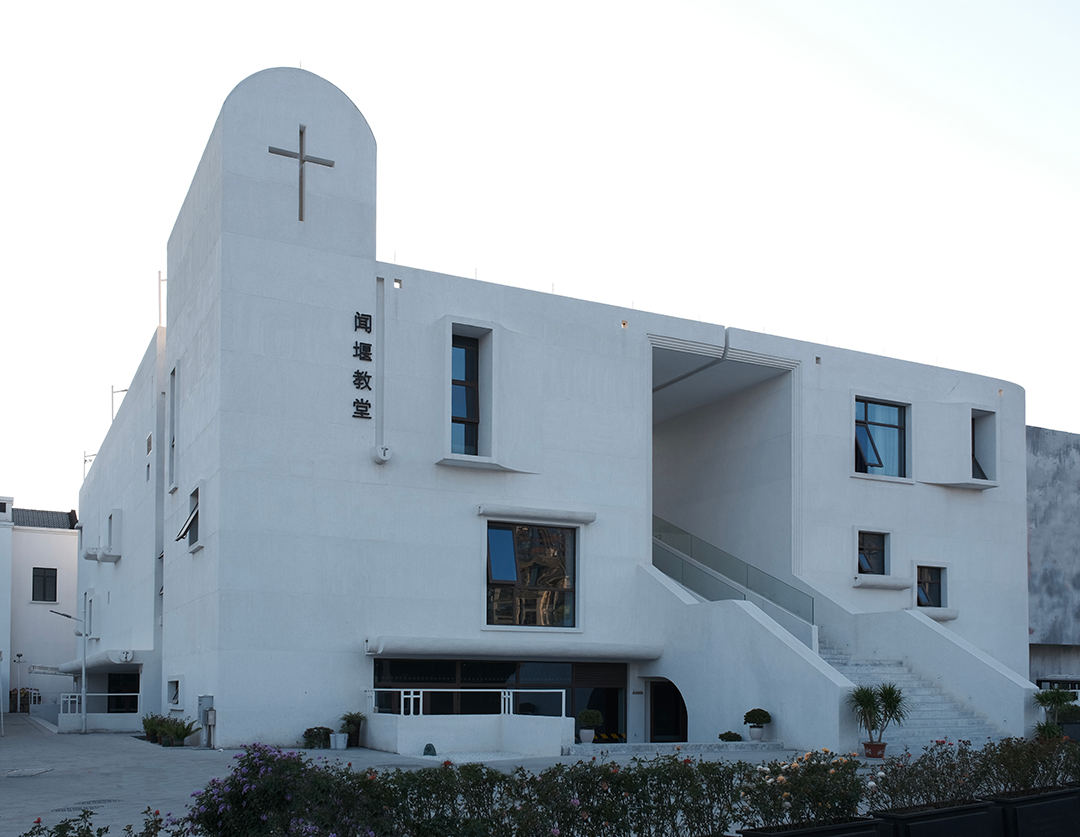

设计单位 浙江大学城乡规划设计研究院有限公司
项目地点 浙江杭州
建成时间 2023年
建筑面积 2035平方米
“十字”成为人们崇拜的标识源于早期人类对宇宙世界的天文观测,最早通过直立地表标竿的影子了解天文规律。光是一种安静的力量,光可以打开灵魂的诗意境界,而建筑是捕捉光的容器。
The "cross" became a symbol of worship for early humans due to their astronomical observations of the universe. They first understood astronomical patterns through the shadow of an upright gnomon. Light is a powerful force, opening the doors to the poetic realm of the soul, and architecture is a vessel that captures light.
闻堰教堂是团队的一次精神空间实践,我们设计的出发点是使其成为“可看到江的教堂”。杭州闻堰是钱塘江、富春江、浦阳江交汇之地,项目位于闻堰街道的钱塘江东侧,毗邻闻堰老街。
The Wenyan Church is a spiritual space practice by our team. Our design goal is to create a "church with a view of the river." Wenyan, Hangzhou, is where the Qiantang River,Fuchun River, and Puyang River converge. The project is located on the east side of the river in Wenyan Street, adjacent to the old street of Wenyan.
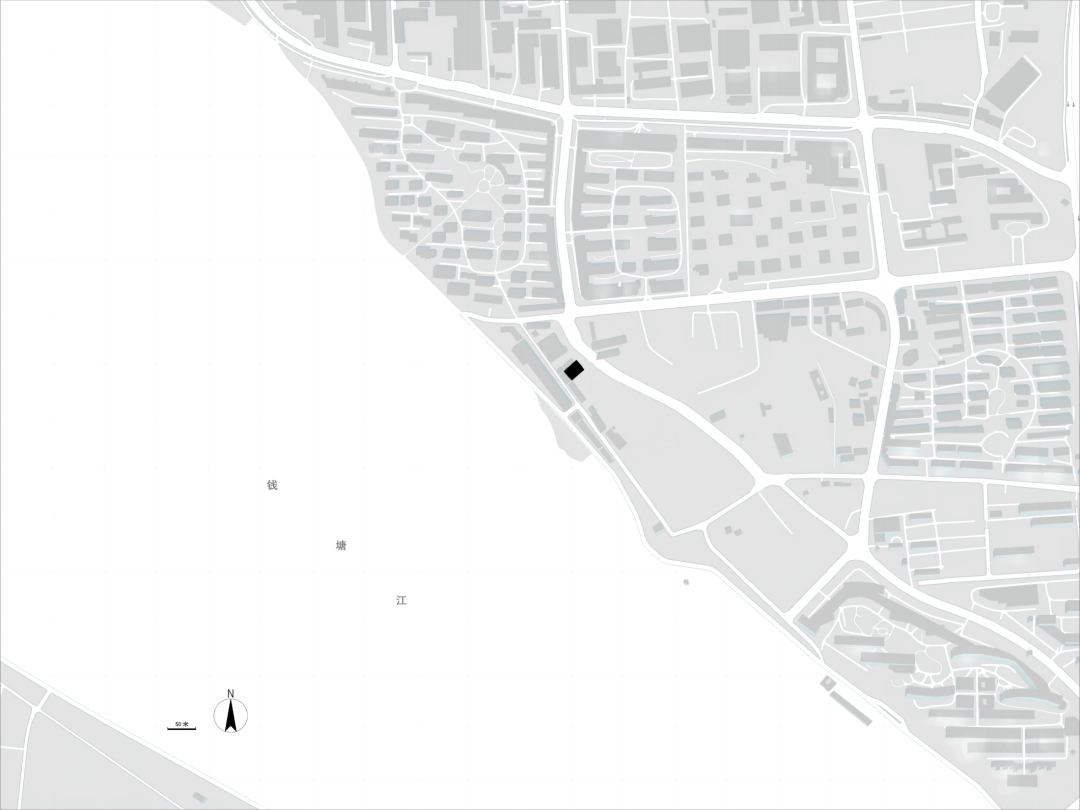

闻堰教会的建立始于1921年;1929年冬,由加拿大传教士罗戈登,在闻堰创办中华基督教五旬节圣洁会闻家堰福音堂。因历史原因教会活动几经停止恢复,1999年,闻堰基督教会出资拍购位于闻堰新市街180号的繁达商场食品厂房屋,作为教堂。
The establishment of the Wenyan Church dates back to 1921. In the winter of 1929, Canadian missionary Robert Gordon founded the Chinese Christian Pentecostal Association Wenjiayan Gospel Hall in Wenyan. Due to historical reasons, the church activities were stopped and restarted several times. In 1999, the Wenyan Christian Church purchased and renovated a dilapidated building at No. 180 Xinshiji Street to serve as the new church.
这是一个原址更新的项目,老教堂空间狭小,较为破败,当接到设计这样一个仪式之所的邀约时,业主提出原址重新建造的要求,我们试图以创造一种精神空间的视角去审视和创建这个新的建筑。
This is a renovation project on the original site. The old church was small and rundown. When we received an invitation to design a new structure for this ceremony hall, the client requested to build a new one on the original site. We attempted to approach and create this new building from a perspective of spiritual space.
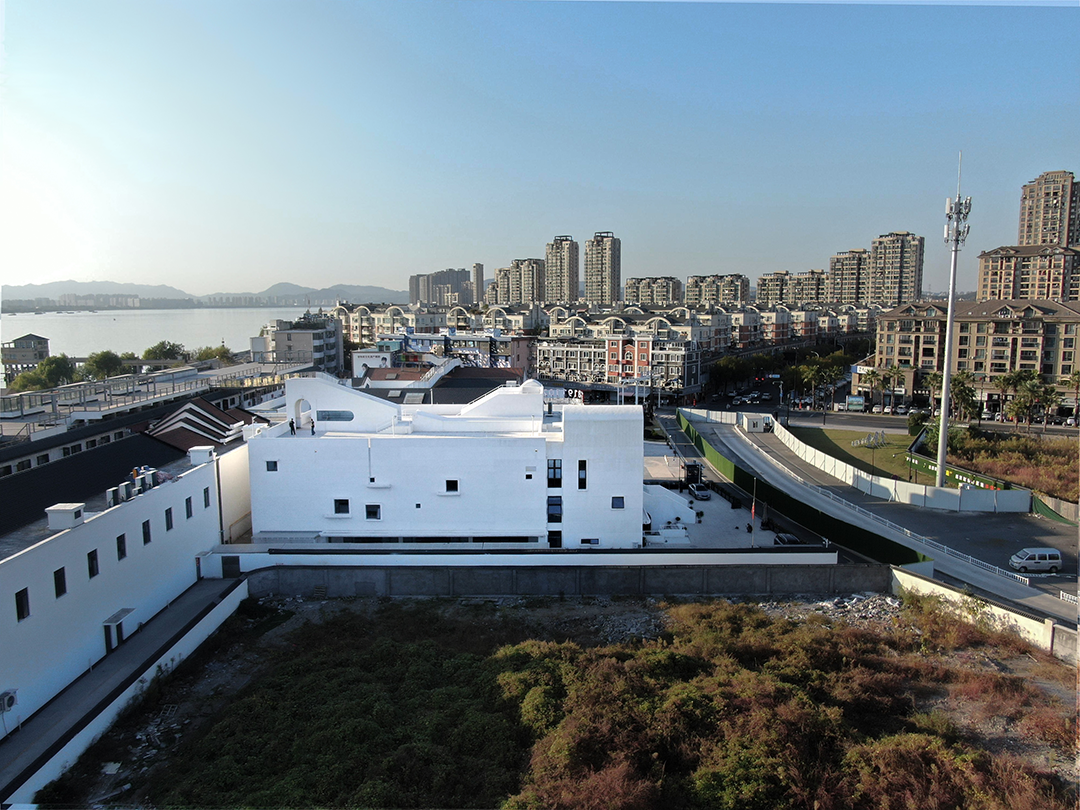
新的教堂建筑旨在营造一个既满足宗教功能与精神性需求,又具艺术属性的空间容器。开放的中轴“天梯”连接入口广场与屋顶,象征摆脱了束缚,奔向天国。建筑入口颇有仪式感,沿着中轴的阶梯而上,高大的入口倾泄神圣之光。通过大台阶进入二层的主礼堂,沿着“天梯”上行到达天台,向西眺钱塘江,在这里可以看到最美日落,落日被视为天堂的曙光。
The new church building aims to create a space that not only meets religious and spiritual needs but also has artistic attributes. The open central staircase connects the entrance plaza with the roof, symbolizing freedom from constraints and reaching toward the heavens.


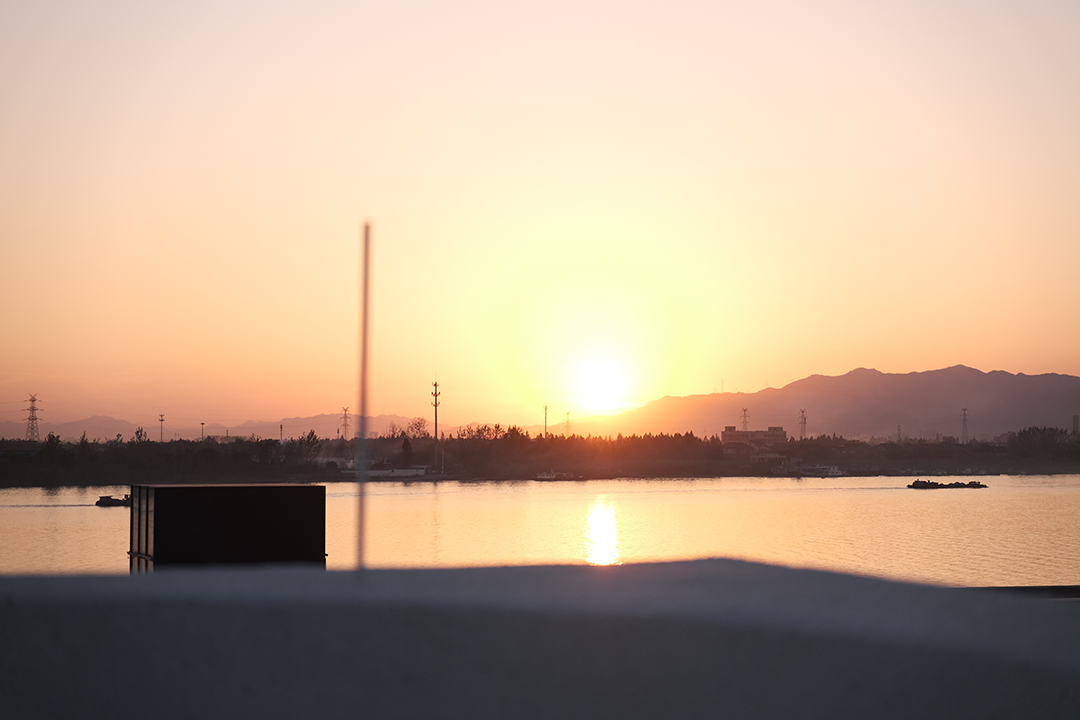
设计通过“天梯”完成了仪式感的空间序列,是一次神圣的体验。“天梯”在引导人们进入教堂的同时,开始探索屋顶的空间。由于高度限制,建筑做半下沉处理,一层布置了办公、活动、储藏、设备等附属功能;主堂设置于二层,透过“天梯”两侧的屋顶天光,传递造物之福音,局部三层则为牧师办公及设备等功能。
The entrance to the building has a sense of ritual, with a staircase along the central axis, and a sacred light projected through a gap above the tall entrance. One enters the main auditorium on the second floor via the grand staircase and ascends to the rooftop via the ladder, overlooking Qiantang River to the west. Here, one can witness the most beautiful sunset, with the setting sun regarded as a preview of heaven. The ladder completes the ceremonial spatial sequence and creates a sacred experience. While guiding people into the church, the ladder begins to explore the space of the roof. Due to height restrictions, the building is treated with half-sunken design. The first floor is arranged with auxiliary functions such as offices, activities, storage, and equipment; the main hall is located on the second floor, where natural light enters through the roof on both sides of the ladder, spreading the gospel of creation. The third floor is for pastor offices and equipment.

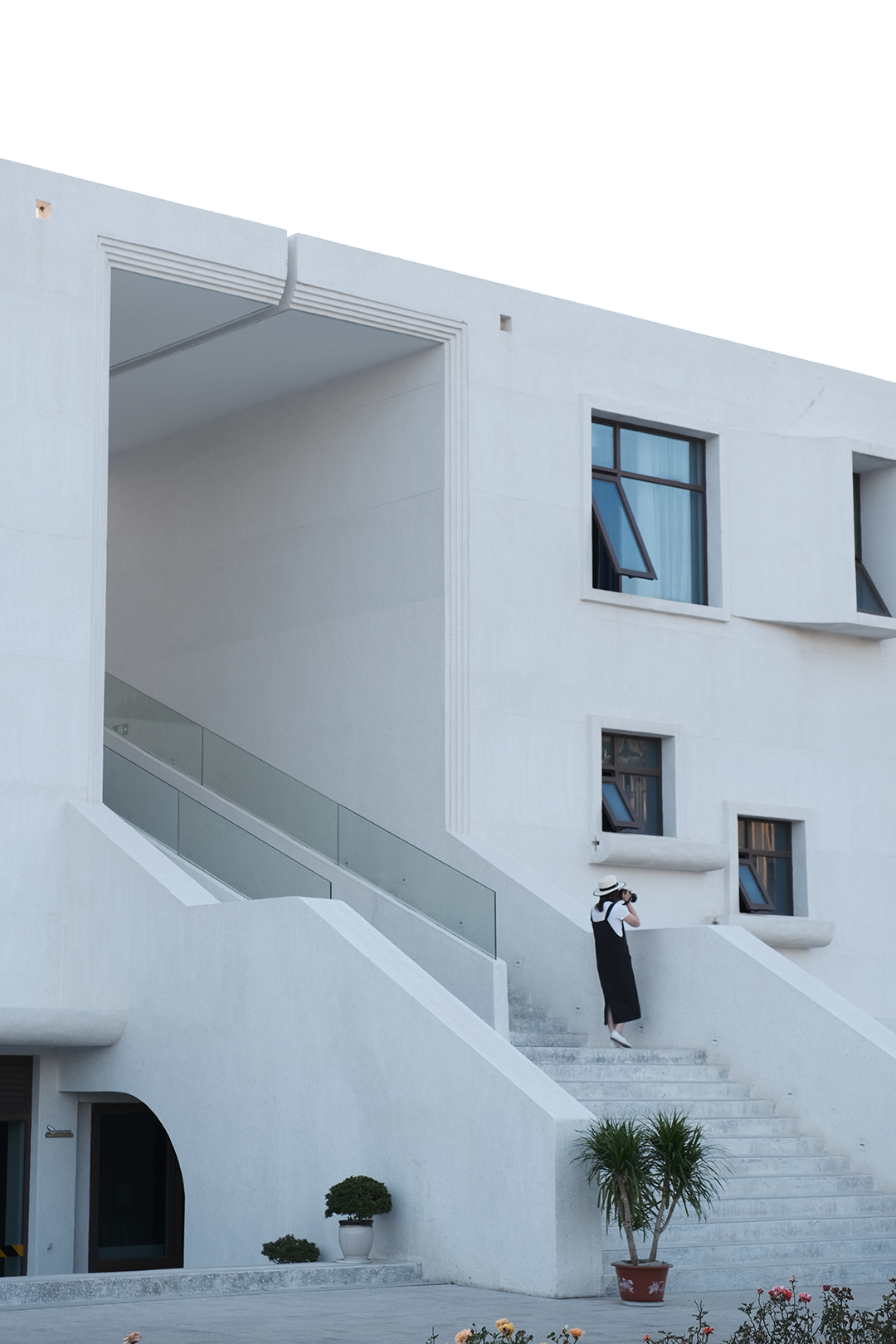
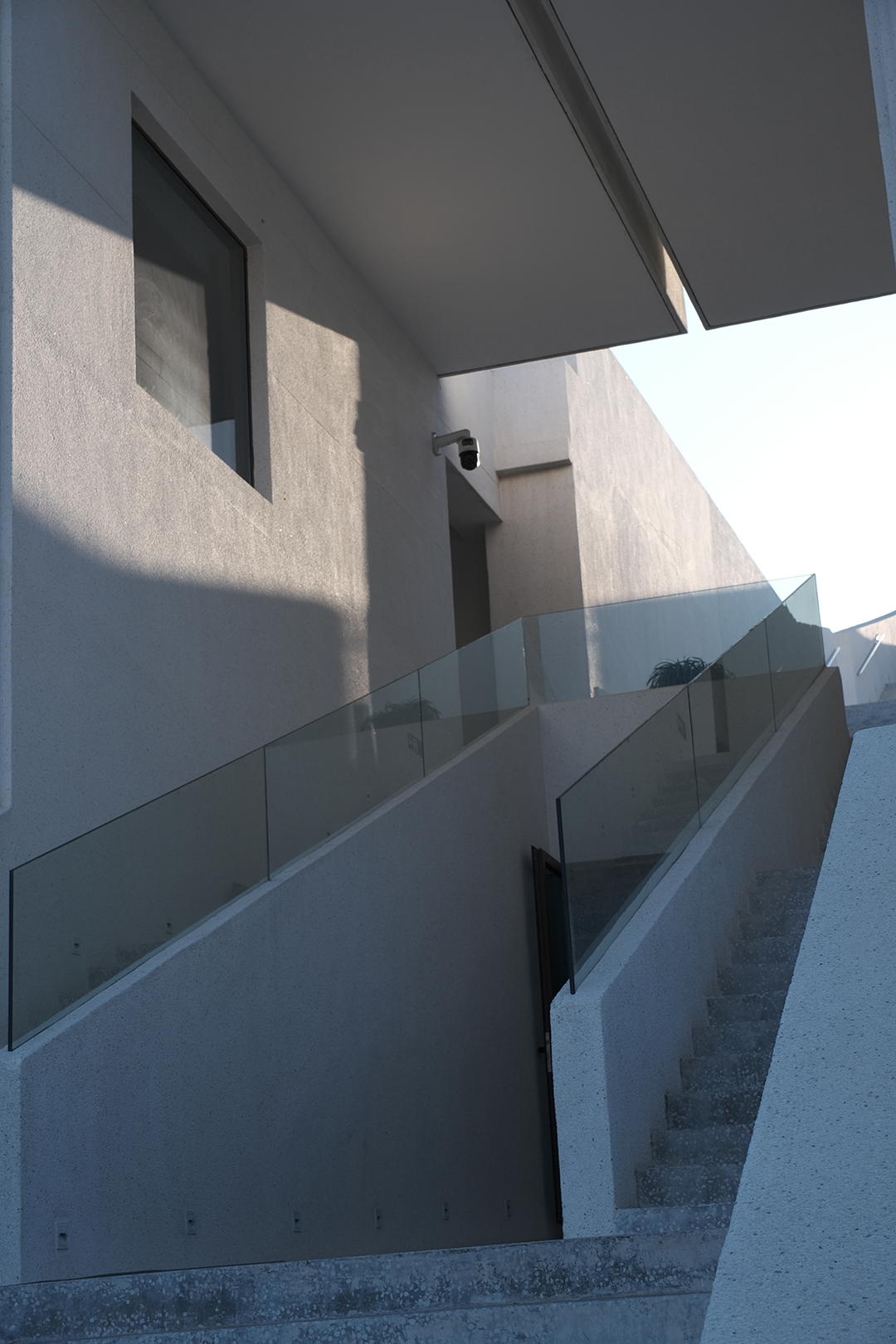
宗教建筑中营造氛围及塑造神性能够在精神层面指引信徒,对非信徒参观者亦可强调场所特性。建筑在平面布局上回归轴向延伸,采用对称布局的十字经典空间原型。教堂中轴线“天梯”,源自圣经的“雅各的梯子”,寓意通向神圣和幸福的途径。“天梯”每12级一段,共八段,12蕴含着圣经“十二使徒”的意义。
Creating an atmosphere and invoking the divine in religious architecture can guide believers on a spiritual level, while also emphasizing place-specific characteristics for non-believers who visit. The building's layout returns to an axial extension and uses a symmetrical layout based on the classic spatial template of the cross. The central axis of the church, "the Stairs," is derived from the Biblical "Jacob's Ladder," symbolizing a path to divine holiness and happiness. Each flight of stairs has 12 steps, divided into eight sections, with 12 carrying the significance of the Biblical "Twelve Apostles."




十字符号作为教堂的宗教象征,不仅运用在建筑平面的构成,同时也点缀在建筑的栏杆、雨棚、女儿墙构架等部位,体现了基督宗教特点的指向。
The cross serves as a religious symbol for the church, not only in its planar composition but also in its decorative elements such as railings, canopies, and parapets.
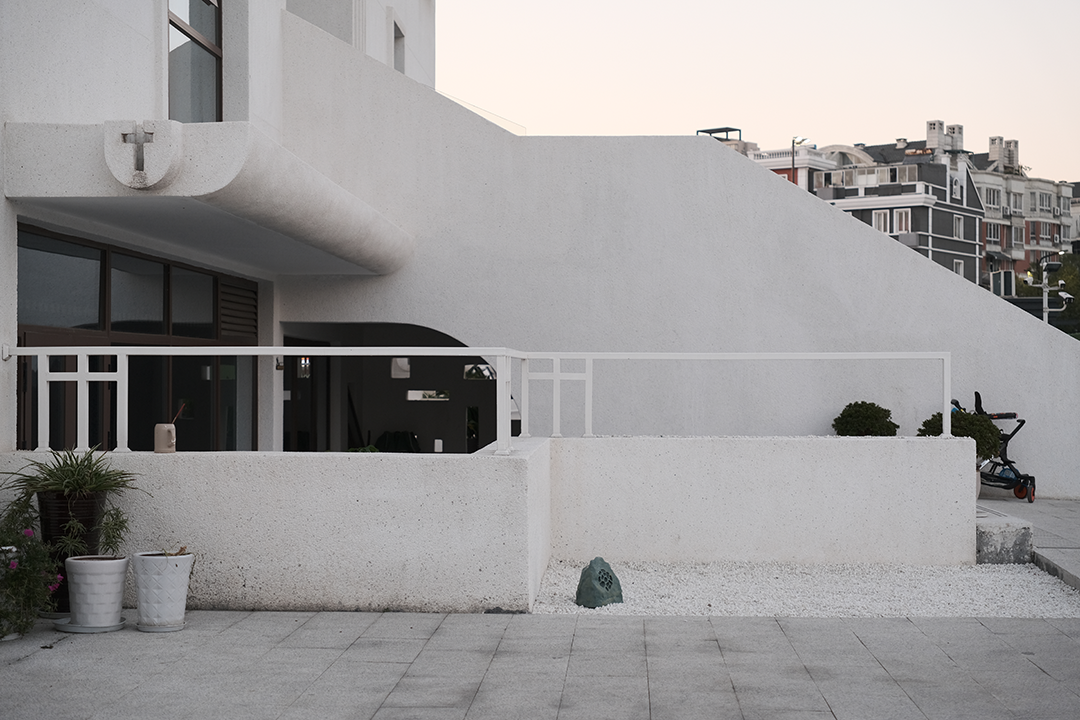
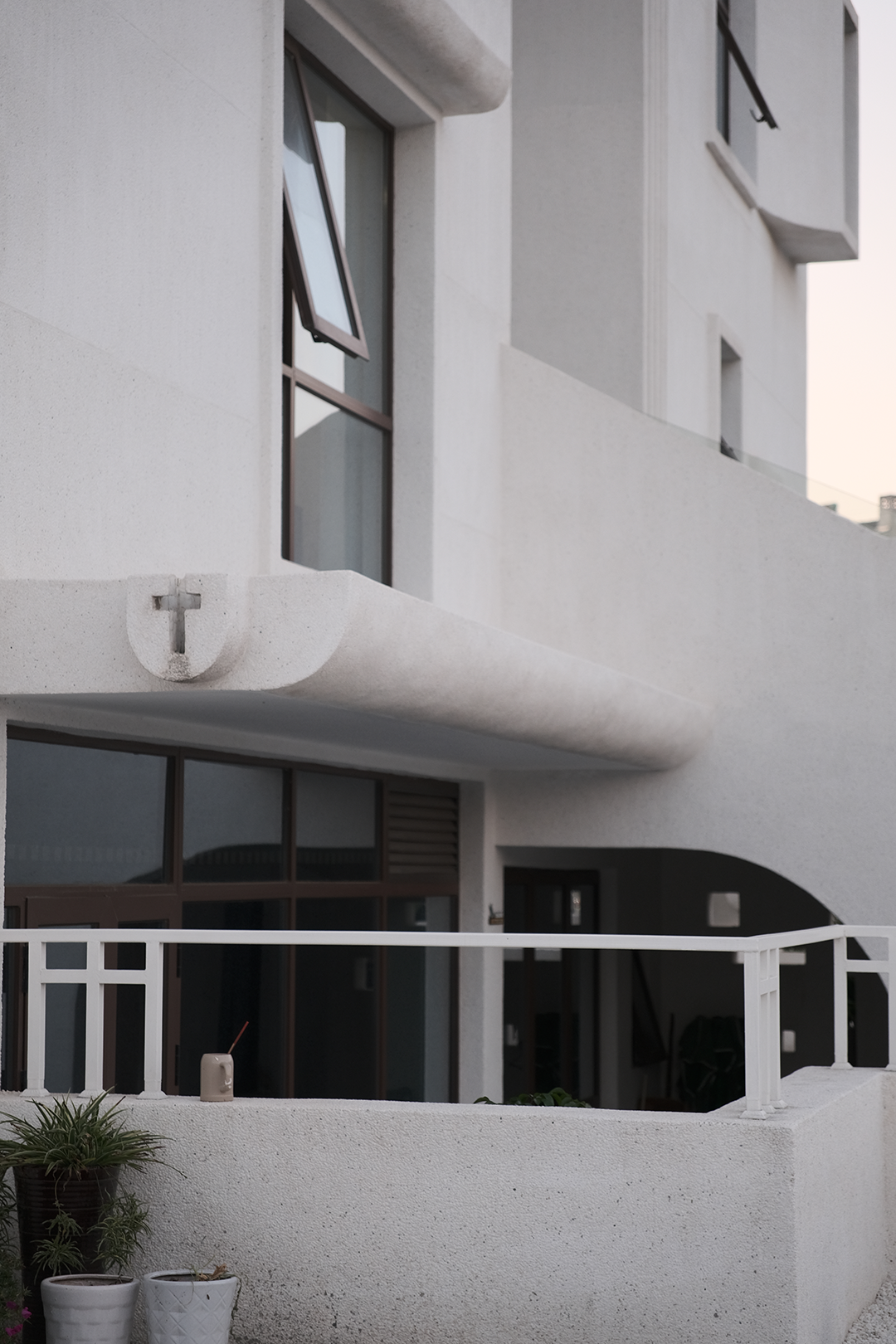
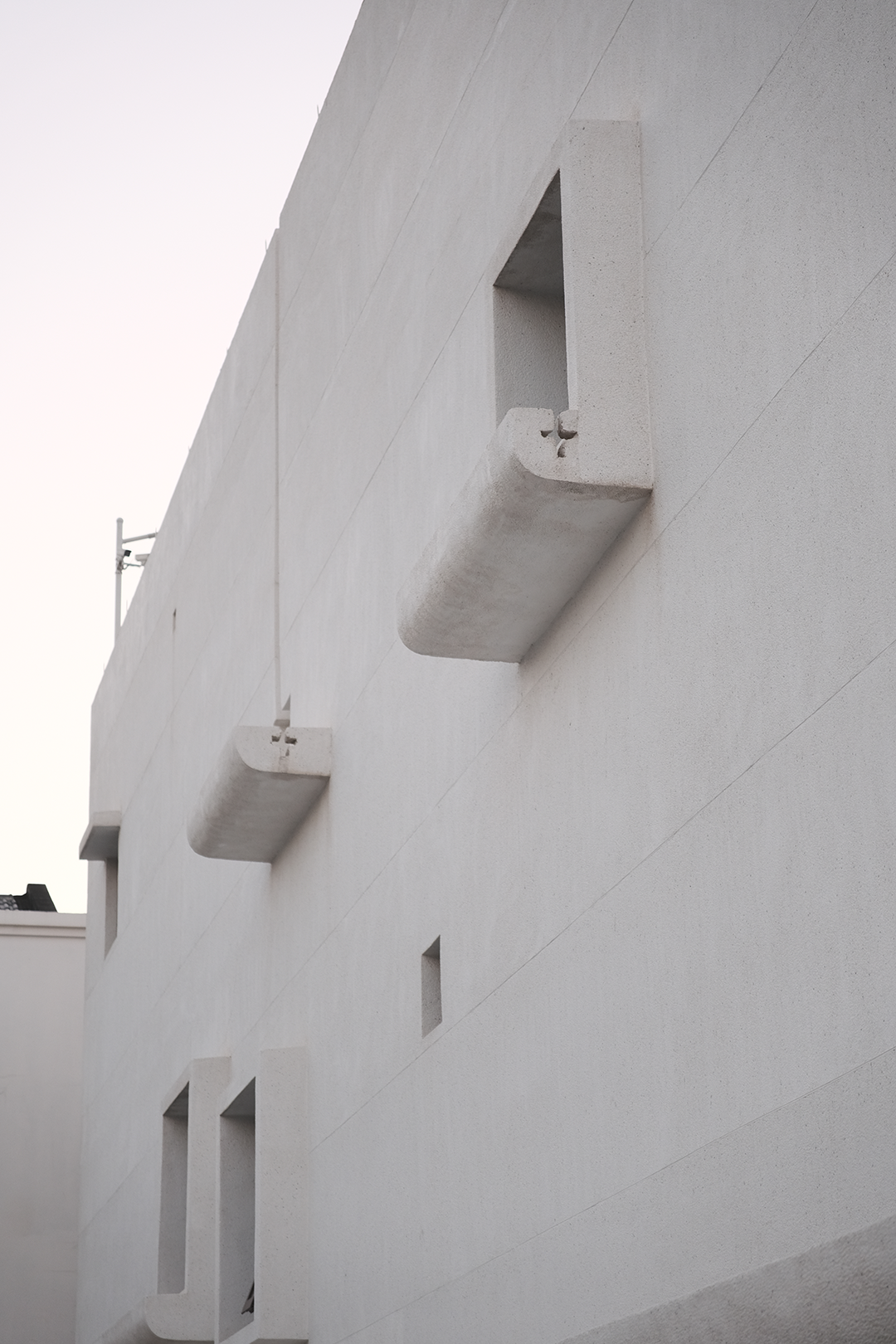
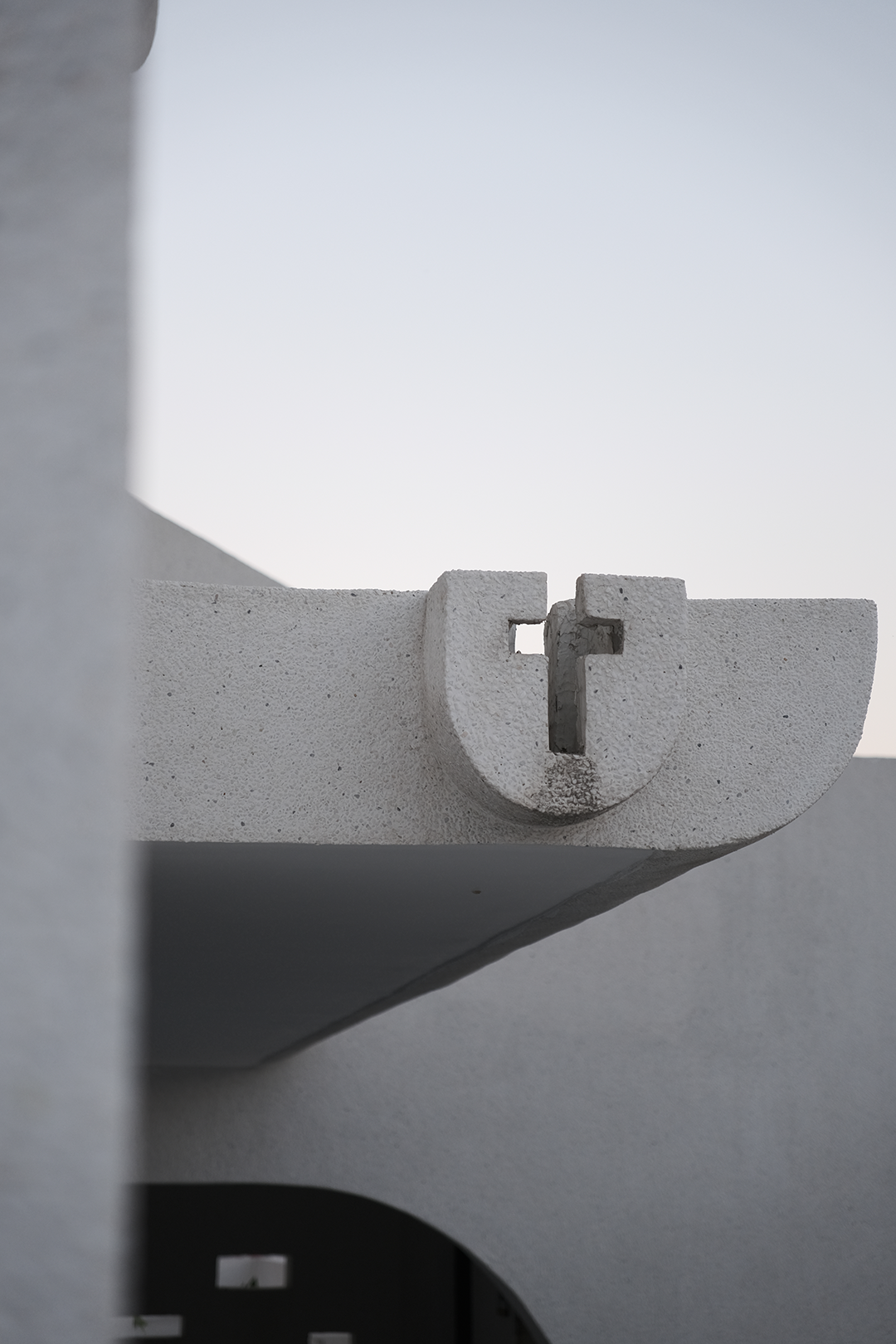

作为建筑的外部形象,我们认为它须是纯粹的,立面采用白色水洗石,纯净的外墙增加了一份虔诚的气氛。
As for the building's external appearance, we believe it must be pure. The facade features white washed stone, adding a sense of devotion to its clean exterior walls.

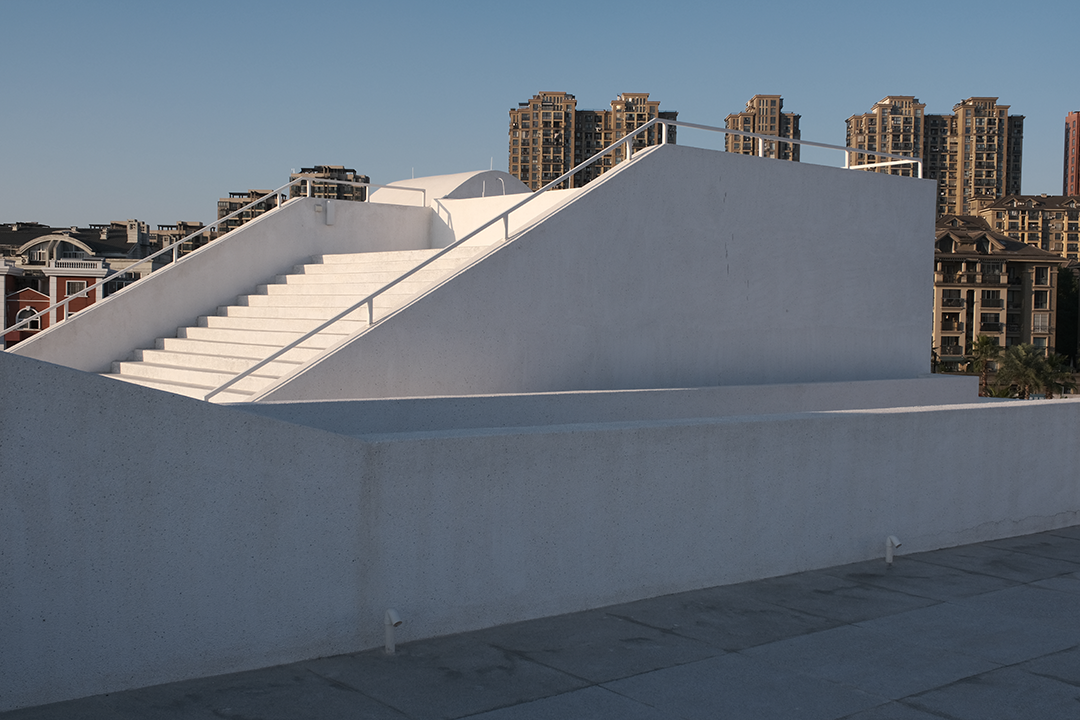
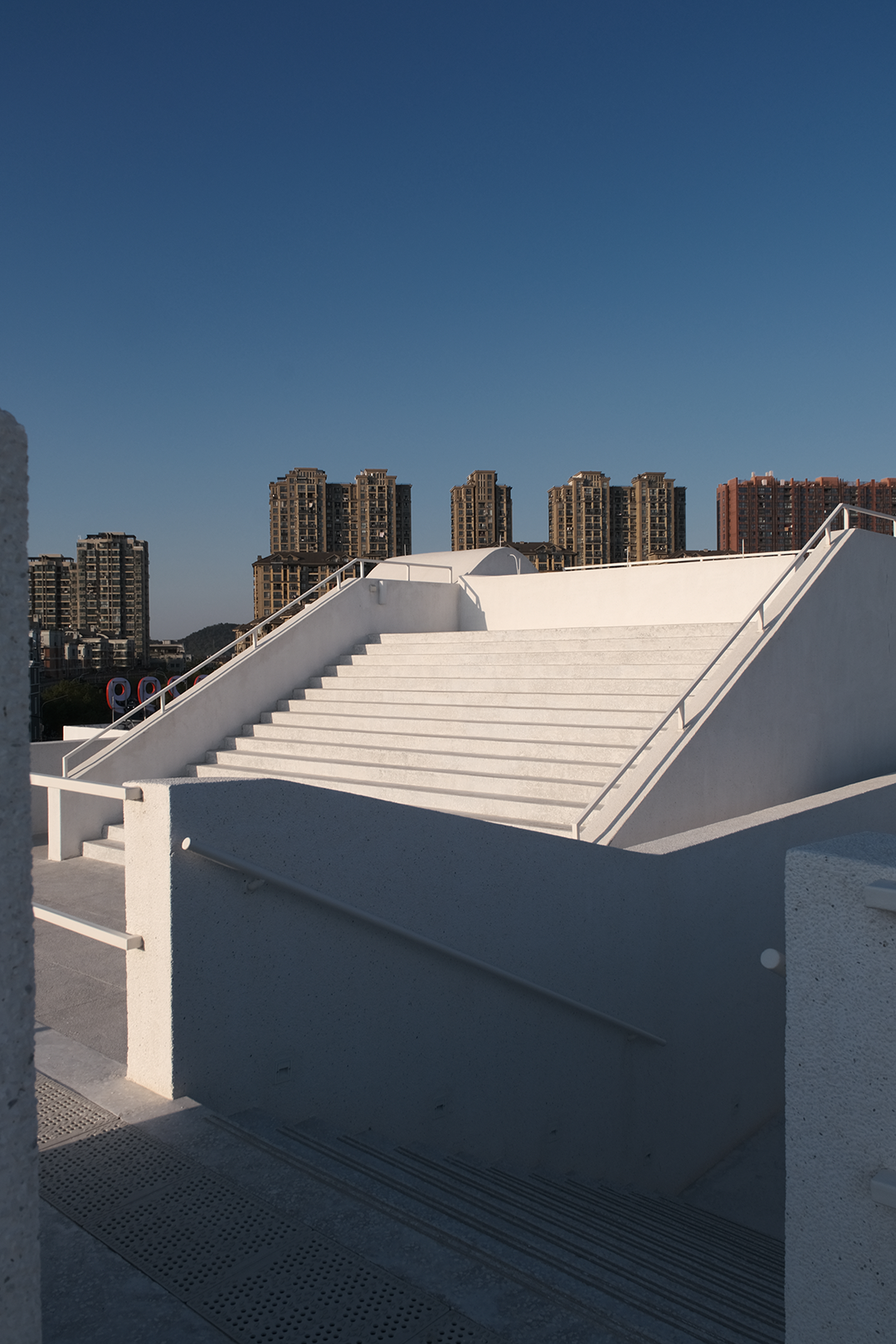
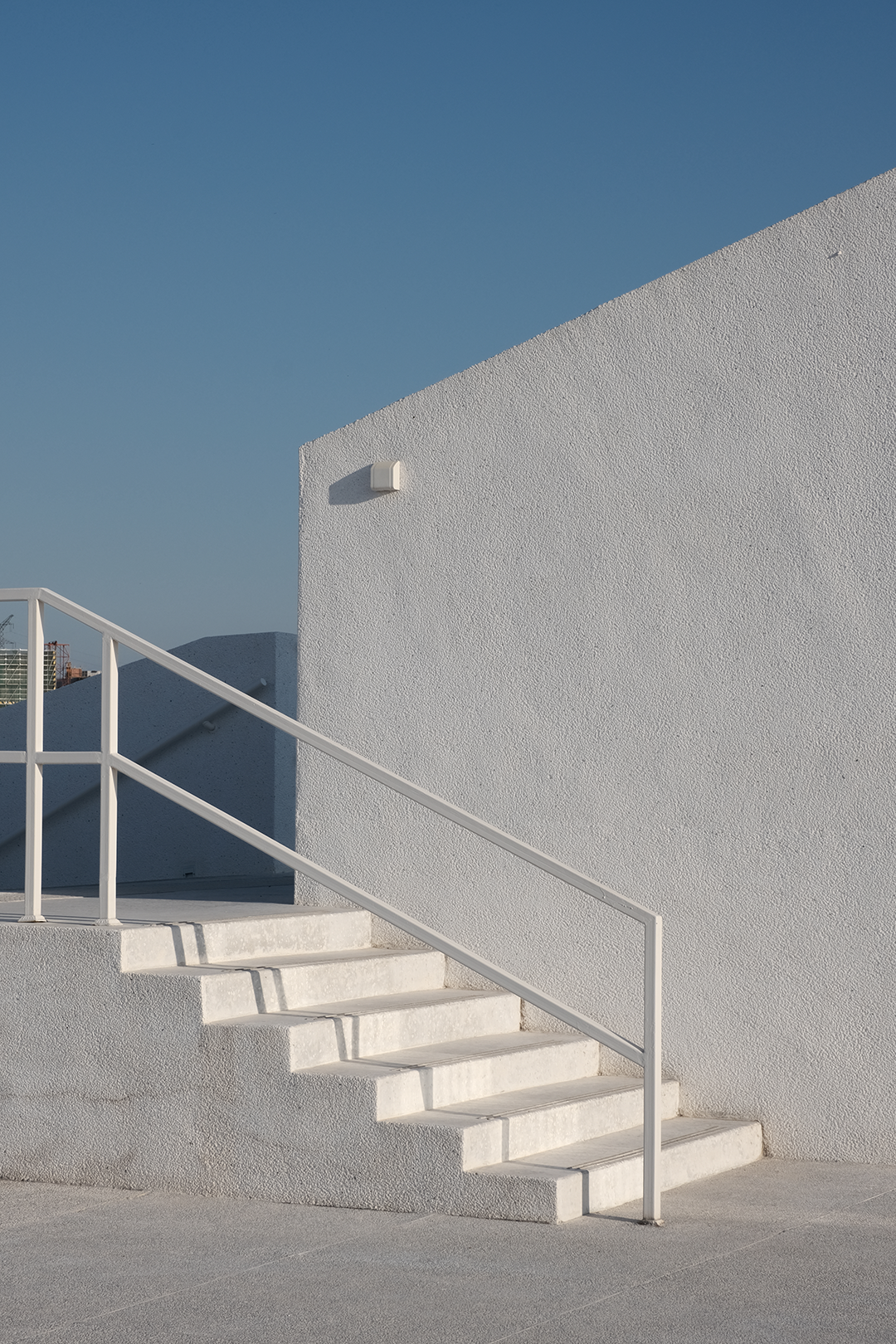
内部则像充满光的盒子,柔和的光线从侧面窗户照进室内。立面开窗的光线设计营造神性,光线通过大小不一的窗洞投射下来,使室内充满了神秘、宁静,置身其中会感受到神圣与精神力量。
The interior, however, is like a light-filled box, with soft light shining in through side windows. The facade's window design creates a sense of divinity in the light shining through its variously sized windows, filling the interior with a sense of mystery, tranquility, and divinity when entering.



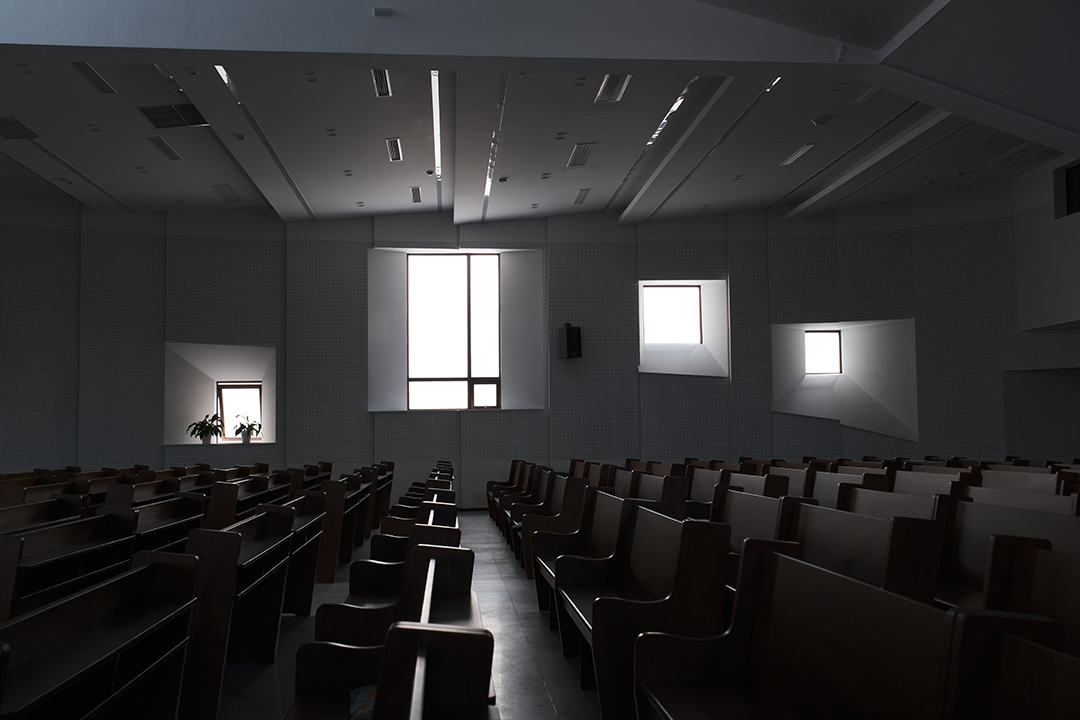

这里,光影、艺术、建筑、信仰和象征主义在和谐共处,为宗教场所创造了一个独特的精神领域。在阳光游走之间,人们感到静谧和诗意,时间仿佛永恒。
Here, light and shadow, art, architecture, faith, and symbolism coexist in harmony, creating a unique spiritual realm for religious venues. As the sun casts its warm glow, people feel a sense of tranquility and poetic beauty, as if time stands still.
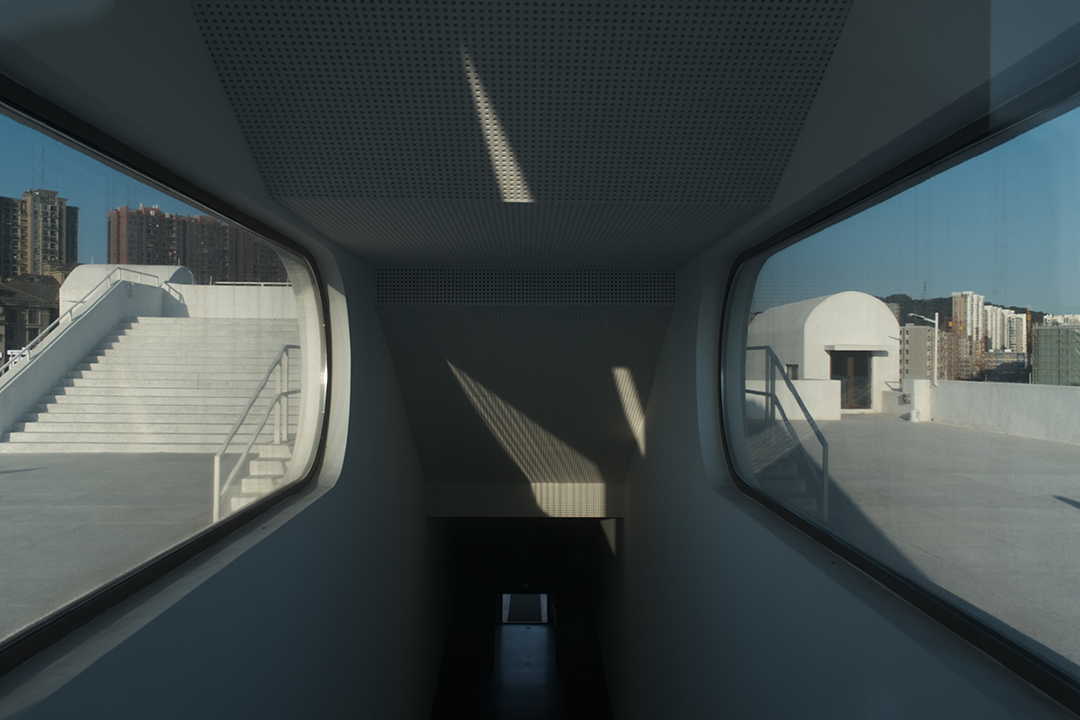
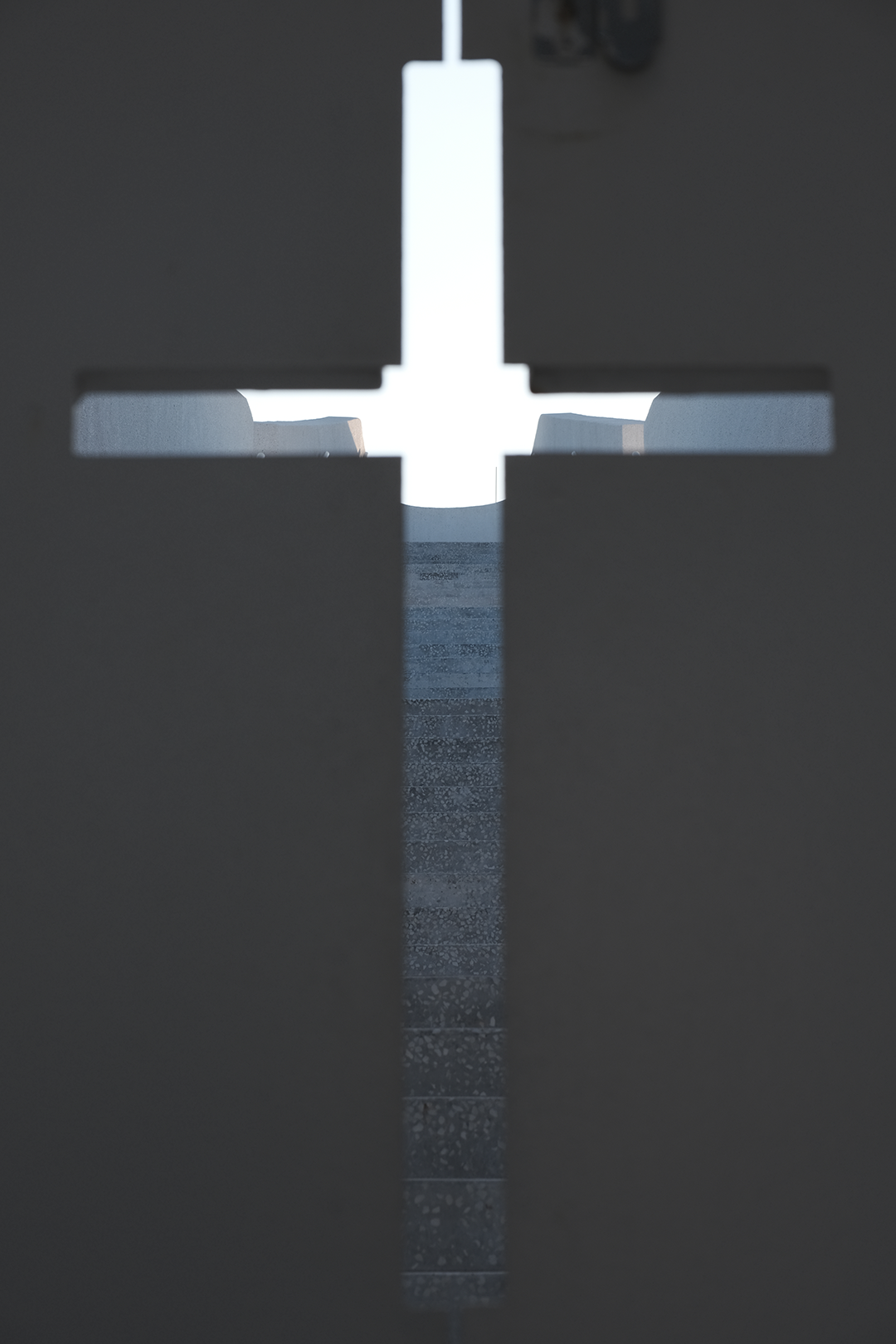
设计图纸 ▽


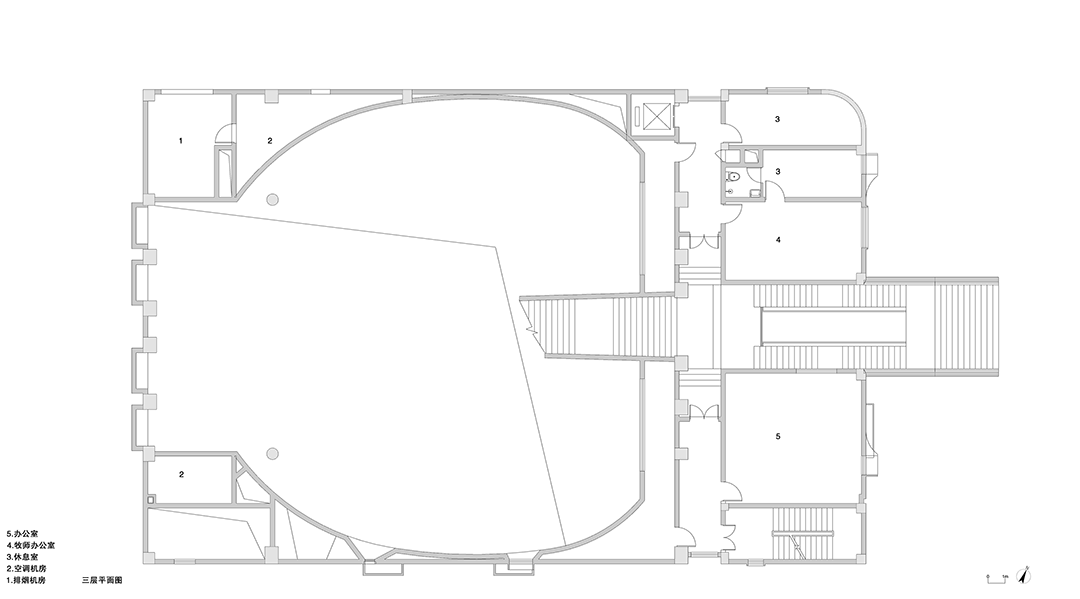
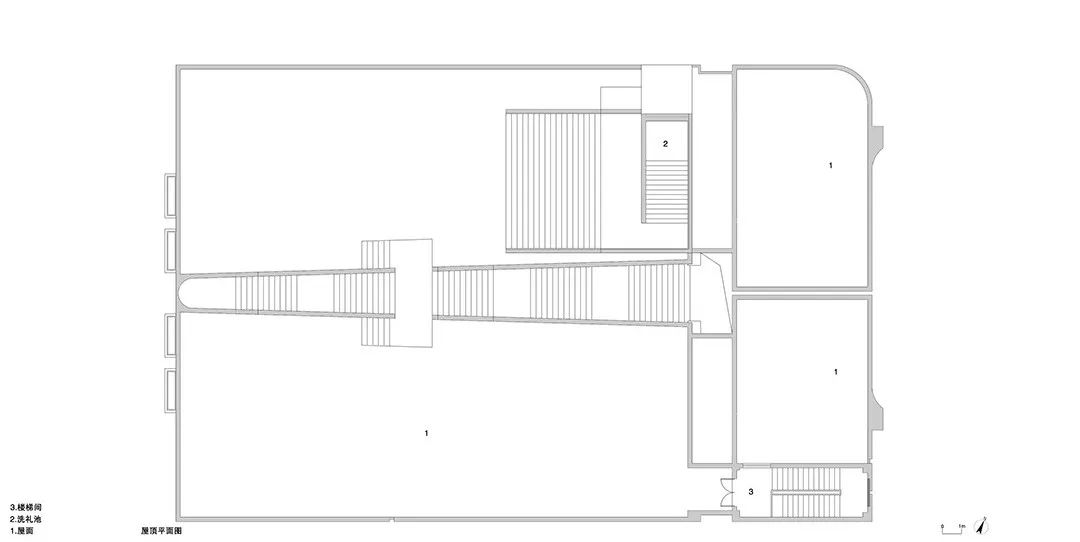
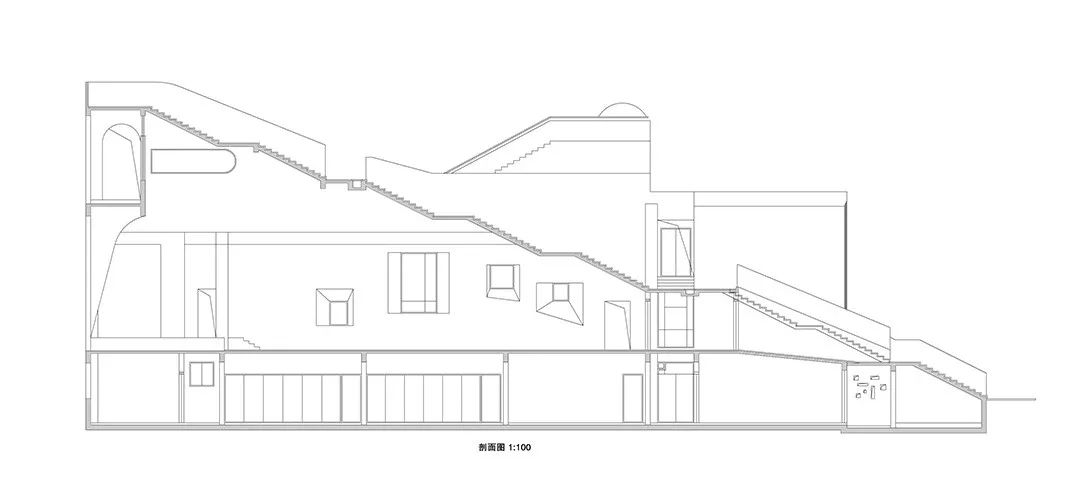
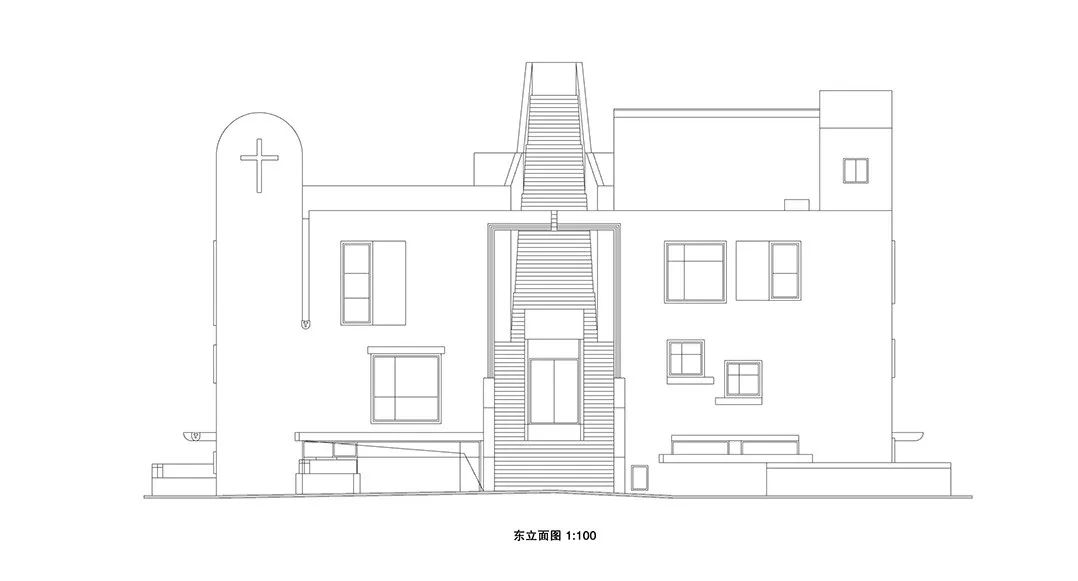

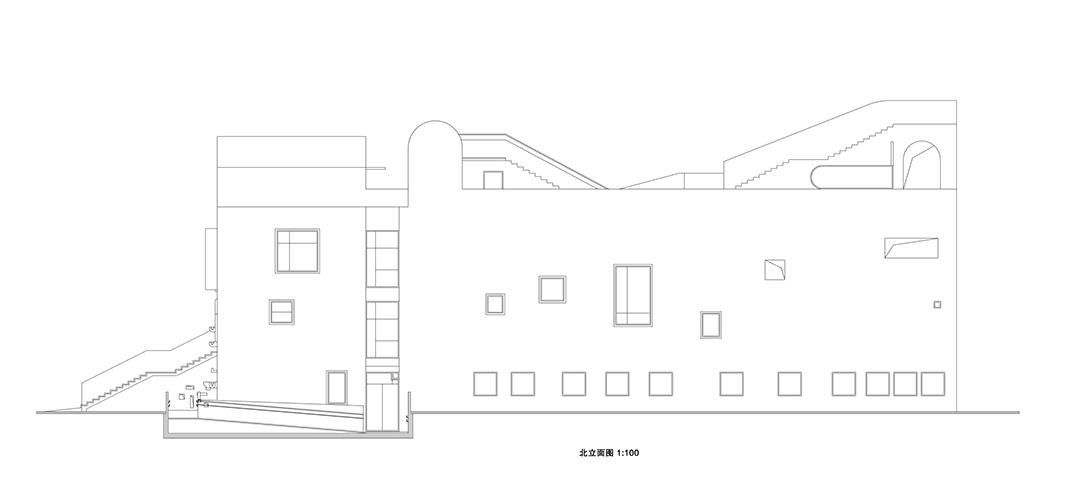

完整项目信息
项目名称:闻堰教堂
项目类型:建筑
项目地点:杭州市萧山区闻堰街道新市街
设计单位:浙江大学城乡规划设计研究院有限公司
事务所网站:http://www.zjdxghy.com
主持建筑师:龚永平
主创设计:张玉龙
设计团队完整名单:邵春俊、刘德志、王飞、王敏舟、余果、金其泉、曾紫晴
业主:杭州市萧山区闻堰街道基督教闻堰教堂
造价:约750万
建成状态:建成
设计时间:2021-2022年
建设时间:2021-2023年
用地面积:960平方米
建筑面积:2035平方米
结构:刘德志
室内:金其泉
材料:水洗石、水磨石、玻璃、金属
航拍:张玉龙;摄影:汤晓宇
本文由浙江大学城乡规划设计研究院有限公司授权有方发布。欢迎转发,禁止以有方编辑版本转载。
投稿邮箱:media@archiposition.com
上一篇:福斯特事务所新作:迪拜ICD布鲁克菲尔德广场
下一篇:非常建筑新作:深圳南头城社区中心,开放和杂质性